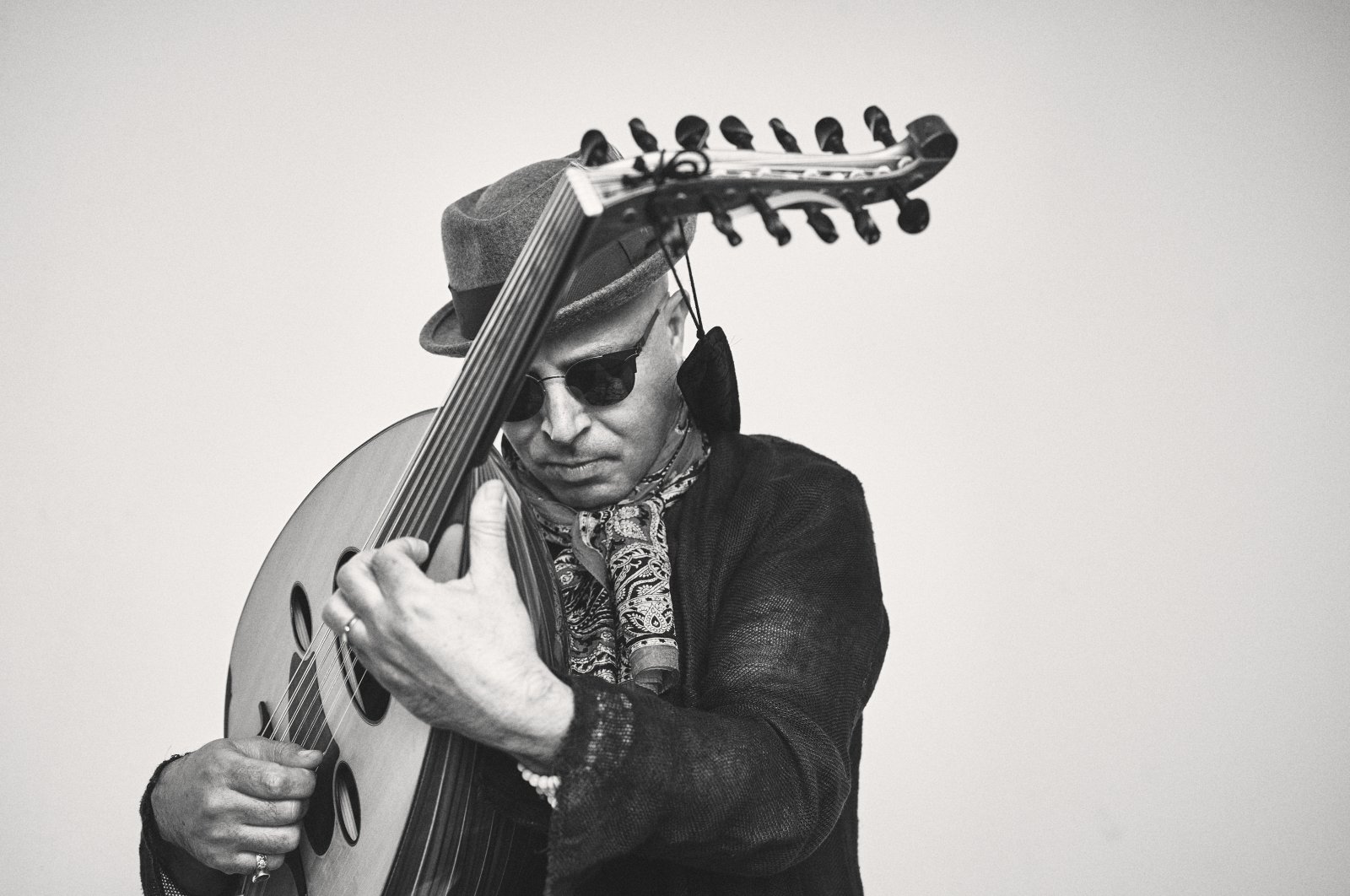
Dhafer Youssef – Street of Minarets : 9TH Album
Some albums are born from spontaneous impulsions or during random rehearsing sessions. Some others need to be matured like good old wine – letting time do its job. Maturation is exactly what the Tunisian Oud Master and Vocalist Dhafer Youssef did for his new album Street of Minarets. Although the composition of the last album Sounds of Mirrors (2018) was quite obvious for him, combining his unique musical touch with Indian music, Street of Minarets required 5 years of questioning and hard work.
Let’s put this new musical journey into Dhafer’s own history. The Oud Master got into music at a very young age through spirituality. At the age of 6, he was singing for wedding ceremonies in his native village Téboulba (Tunisia), 25 kilometres away from Monastir. Then he discovered the Oud and kept on practicing until he had mastered it perfectly. At the end of the 80s, Dhafer moved to Vienna to study classical music. This life experience, where he faced disappointment, loneliness and poverty, turned into a career milestone when he got the opportunity to start playing in the famous Viennese Jazz Club Porgy and Bess.
Today, his long and hard work is reflected on stage where Dhafer knows how to master musical technique with virtuosity and a genuine energy. Even after 13 years of career, 8 albums and numerous worldwide tours, there’s still fire in his belly.
His character led to this new masterpiece achievement in which legendary musicians accepted to take part in :
- Herbie Hancock on the piano
- Marcus Miller on the bass
- Nguyên Lê on the guitar
- Rakesh Chaurasia on the flute
- Adriano Dos Santos Tenori on percussions
- Dave Holland plays the double bass
- Vinnie Colaiuta on Drums
- Ambrose Akinmusire on the trumpet
Dhafer confessed that he wrote the album the opposite way he normally does – he first asked who he’d like to invite on his record and then composed the music with the guests in mind.
Herbie Hancock was his first choice. Following his wife’s suggestion, he took the chance to ask Herbie to join the recording session. Straight after the request, Herbie accepted on a single and convenient condition – Dhafer would have to play on Herbie’s upcoming record. Like Herbie Hancock, Marcus Miller took part in several Miles Davis albums who profoundly inspired Dhafer. With these two pillars, the recording sessions started in 2017 at the Sunset Boulevard studio in Los Angeles, California, where magic happens with other wonderful musicians: Dave Holland, Nguyên Lê, Vinnie Colaiuta and Ambrose Akinmusire.
Dhafer Youssef could have been disoriented by these musical icons. Nonetheless, you feel quite the opposite when you listen to Street of Minarets. The Oud Master has been enriched by their experience and musicality, to which he has added his musical uniqueness – a bridge between the East and West. More accurately, the bridge between Indian, Arabic and Western classical music and jazz music.
“The topic of the album is first and foremost about traveling…” says Dhafer. “After traveling to the four corners of the world, in search of new sounds, here I sing differently and use vocal effects that I grew up with. Particularly the sound effect of megaphones for the call to prayer – hence the record title Street of Minarets.” The rest of the guests took part in the magical journey too. Rakesh Chaurasia‘s flute and
Adriano Dos Santos Tenori’s percussions were recorded in Paris. The album mixing was directed at Nguyên Lê’s home studio in Lyon, France under the supervision of Steve Argüelles. Then the mastering was carried out in Göteborg, Sweden.
“This is also a journey through time” – he states. “The bridge is also between the child I was, a music lover and admirer of the great masters (Miles, Herbie, Dave…) and the grown-up individual I have become. A bridge between the jazz of the 50s and its rockier version of the 80s too. I wanted to show that I am a musician in perpetual motion, avoiding being labelled as kitsch or exotic.”
The album opening is the ethereal eponymous track Street of Minarets. From that point, you get instantly carried away. “Bal d’âme” (what a title!) creates a cinematographic transition, setting a dialogue between Dhafer’s Oud and Herbie’s Piano. This dialogue turns into an agora with the third track “SharQ Suite 1: SharQ Serenade”. Marcus Miller‘s bass, Vinnie Colaiuta‘s drums and Ambrose Akinmusire‘s trumpet make their smooth entrance and carry on a conversation throughout the entire album. Not to mention the syncopation of “Funky SharQ” where Herbie’s keyboard layers remind us of The Headhunters and the sharped bass slapping of Marcus Miller on ‘Sudra Funk’.
Who would have imagined that the Oud, an oriental lute with a rounded belly, could take on a funk-like quality? Most of all, who would have imagined 40 years ago that Miles Davis would combine trumpet with synthesizers and electronic drums, without going astray for a second? Boldness is certainly the mark of the greats.
Erwan Benezet
Dhafer Youssef in few words…
Dhafer Youssef is the Tunisian Oud master, vocalist and composer born on November 19th, 1967, in the Tunisian fishing village Teboulba. He grew up in a modest family…

